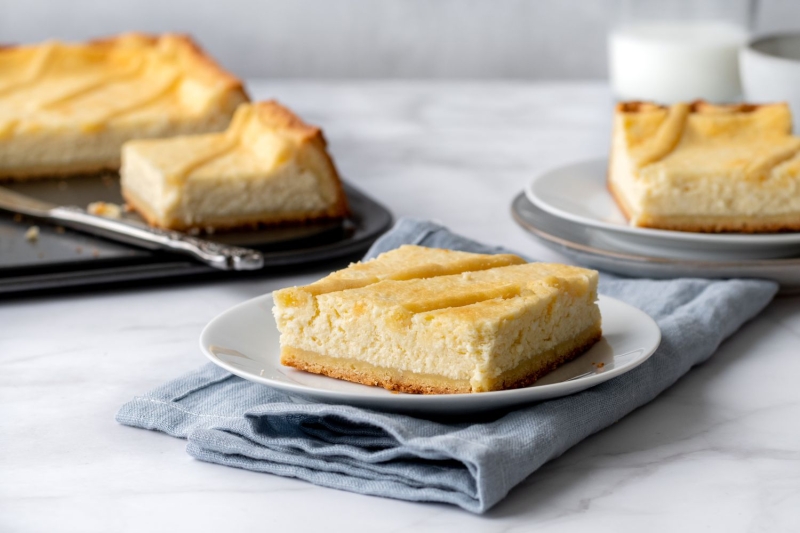Prep: 45 mins
Cook: 60 mins
Cooling/Refrigeration Time: : 5 hrs
Total: 6 hrs 45 mins
Servings: 12 servings
Sernik (SEHRR-neek) is one of the most common desserts served on Polish tables. Easily found in Polish supermarkets, bakeries, and coffee shops, this sweet treat has hundreds of years of history and is thought to have arrived in Poland in the 17th century. Although many varieties have come with the passing of time, the traditional recipe is still a favorite: a sweet pastry crust filled with a type of farmer cheese called twaróg (TVAH-rroog) and then baked to perfection.
Other modern variations use crumbly cake as the base or add fruits, raisins, or chocolate to the filling. One famous sernik is very similar to a strawberry cheesecake, but the base is sponge cake instead of the famous buttery graham cracker crust. Sernik can be baked in a square or round springform pan—both are traditional.
Although it’s possible to buy twaróg in Polish gourmet stores, some cooks use quark instead. The difference lies in the amount of fat, as twaróg can contain a lot of it, while quark can be low in fat. Twaróg is also firmer. Using quark can yield a tasty dessert, but it won’t be as luscious and creamy as one made with twaróg. If twaróg is not an option, make the sernik with homemade farmer cheese.
«I’m not a fan of rich, dense cheesecakes, so I really enjoyed this lighter version. I was worried that the crust would not cook through, since it doesn’t get blind-baked, but the crust and filling baked perfectly together in 50 minutes. Make sure to get the lumps out of your cheese in the food processor.» —Young Sun Huh
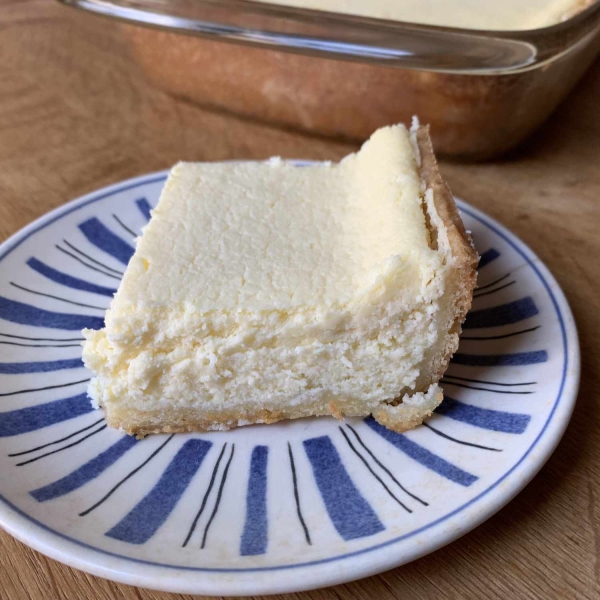
A Note From Our Recipe Tester
Ingredients
For the Crust:
-
2 cups all-purpose flour, more as needed
-
1/2 cup granulated sugar
-
3/4 teaspoon baking powder
-
5 ounces (10 tablespoons) cold unsalted butter, cubed, more for the pan
-
2 large egg yolks, room temperature
-
3 tablespoons sour cream
-
1 large egg, optional
For the Cheese:
-
2 pounds dry-curd cheese, such as twaróg
For the Filling:
-
4 large eggs, room temperature
-
5 ounces (10 tablespoons) unsalted butter, room temperature
-
2 cups granulated sugar
-
1 teaspoon pure vanilla extract
Steps to Make It
Make the Crust
-
Gather the ingredients.
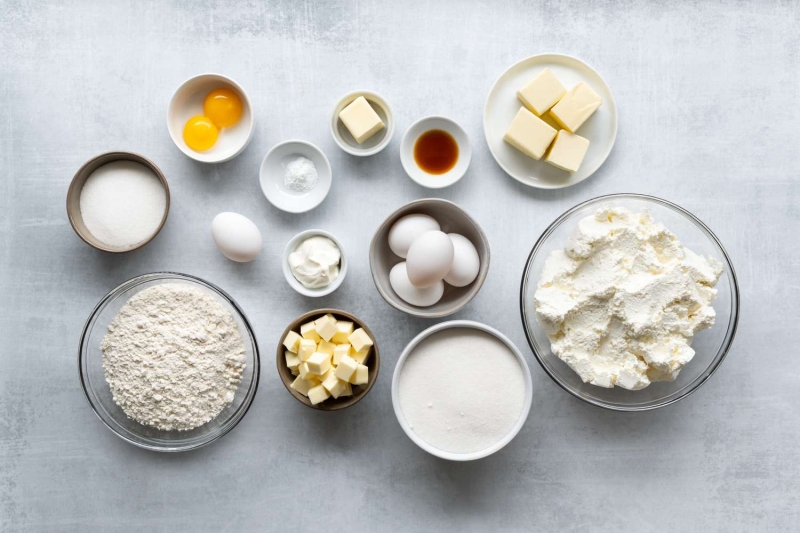
-
In a large bowl or food processor, mix together the flour, sugar, and baking powder.
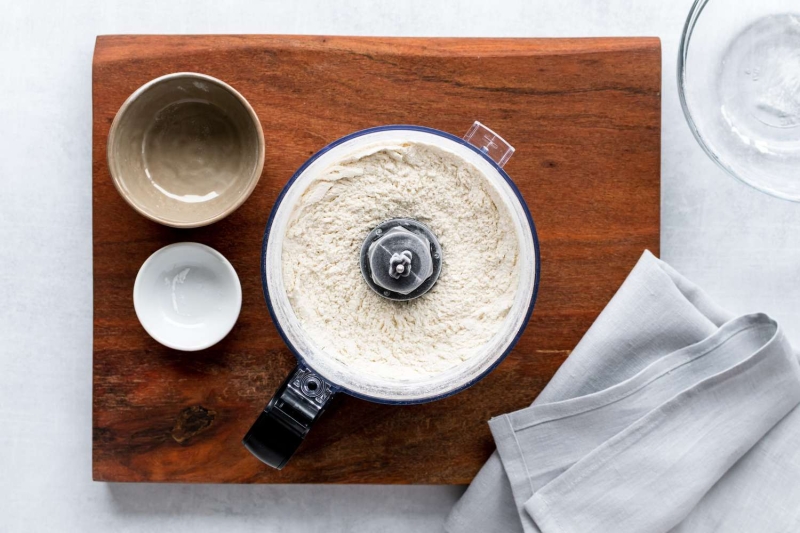
-
Add the cold butter and pulse, or cut it in, until you get a sandy texture, similar to a pie crust.
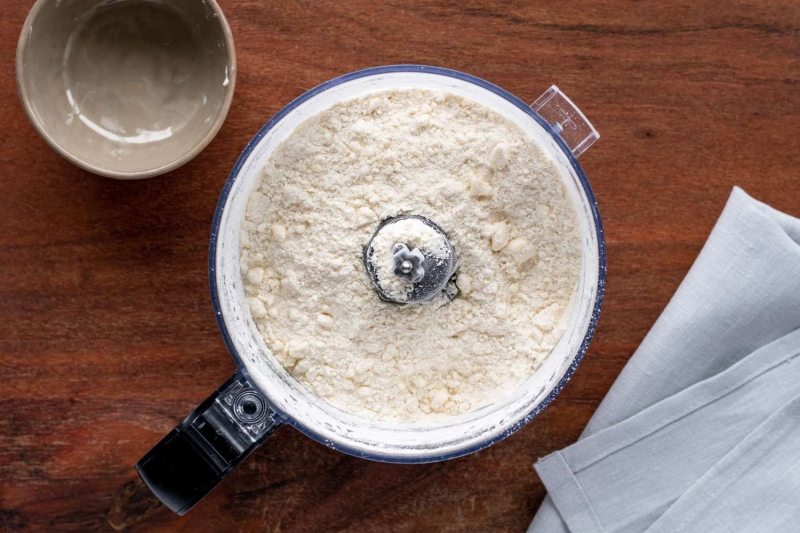
-
In a separate small bowl, mix together the egg yolks and sour cream.
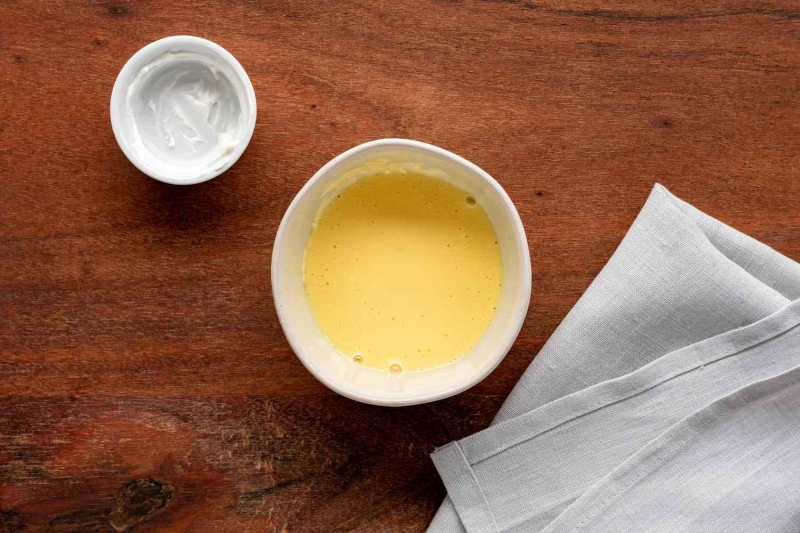
-
Add the egg-sour cream mixture into the flour-butter mixture, mixing or pulsing until just combined. If the dough is too dry, add the optional whole egg. If the dough is too soft to roll, refrigerate for 1 hour so the ingredients dry up and firm.
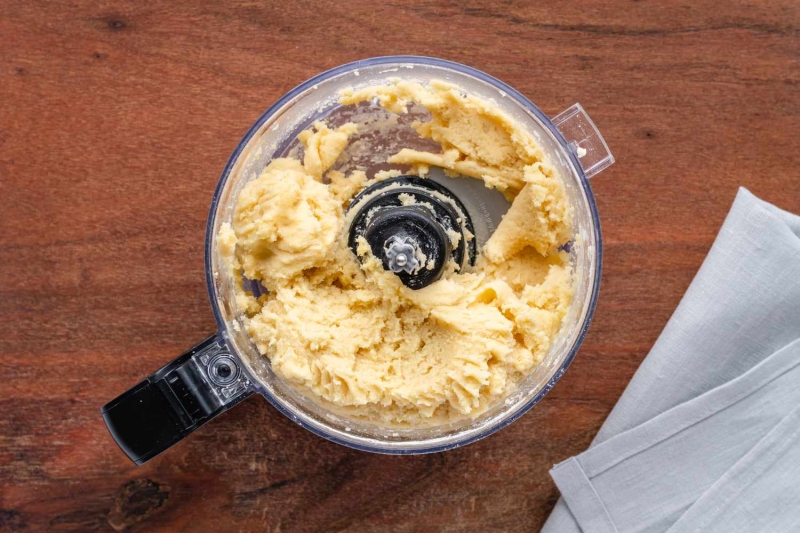
-
Lightly grease a 13 x 9-inch pan, preferably springform, with butter.
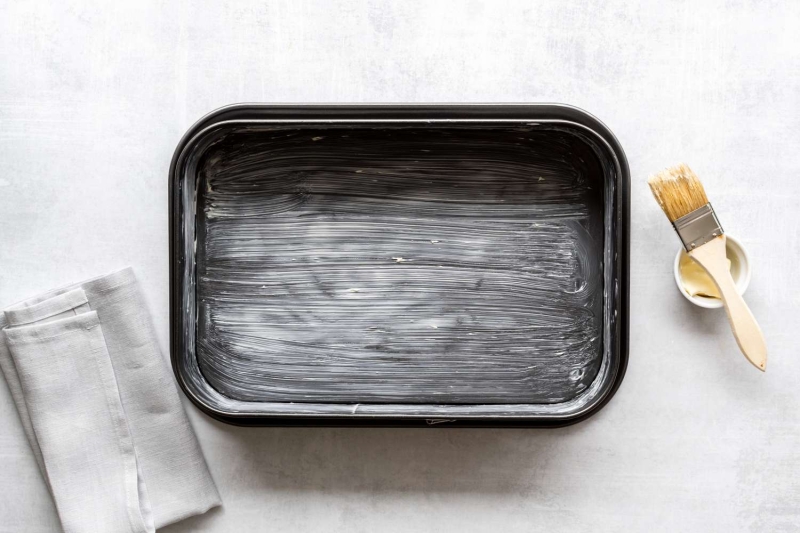
-
On a floured work surface, roll out the pastry dough large enough to line the pan and come up the sides.
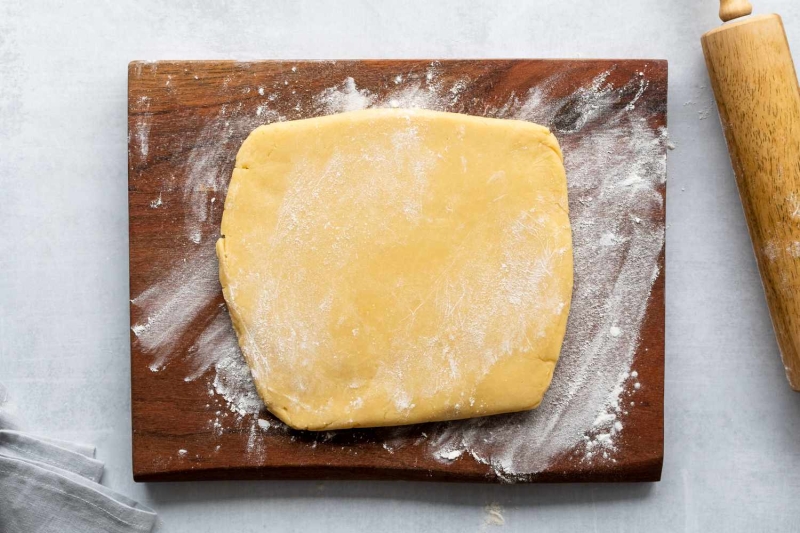
-
Fit the rolled dough into the prepared pan, making a crimped or rolled edge.
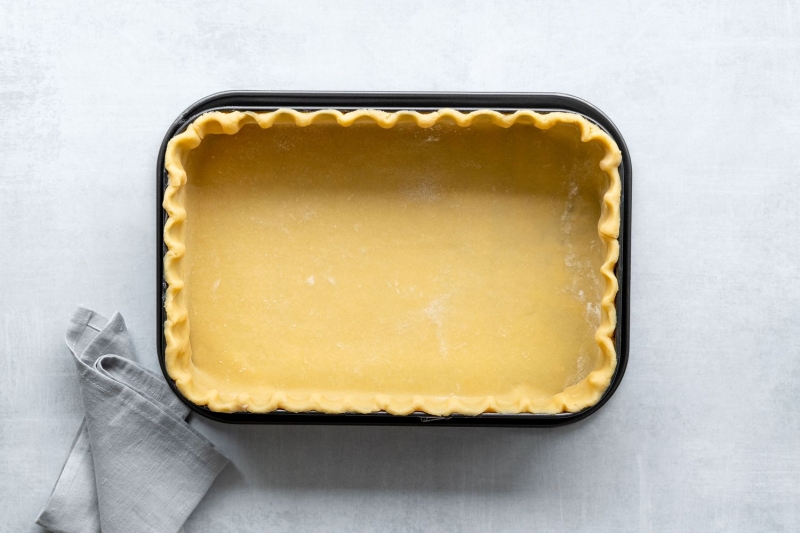
Process the Cheese
-
Place the cheese in a food processor or potato ricer. Process the cheese a few times until smooth with no large lumps. Do not overmix—you want a creamy texture.
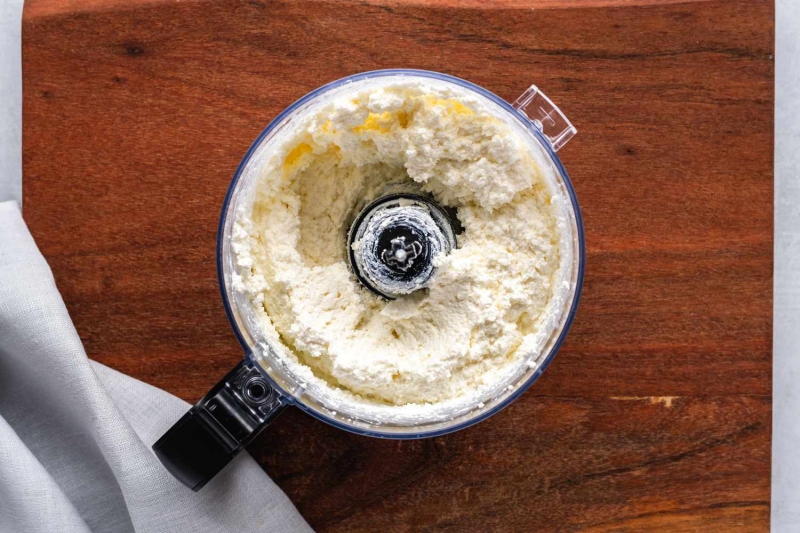
-
Place the processed cheese in a large bowl. Cover and set aside.
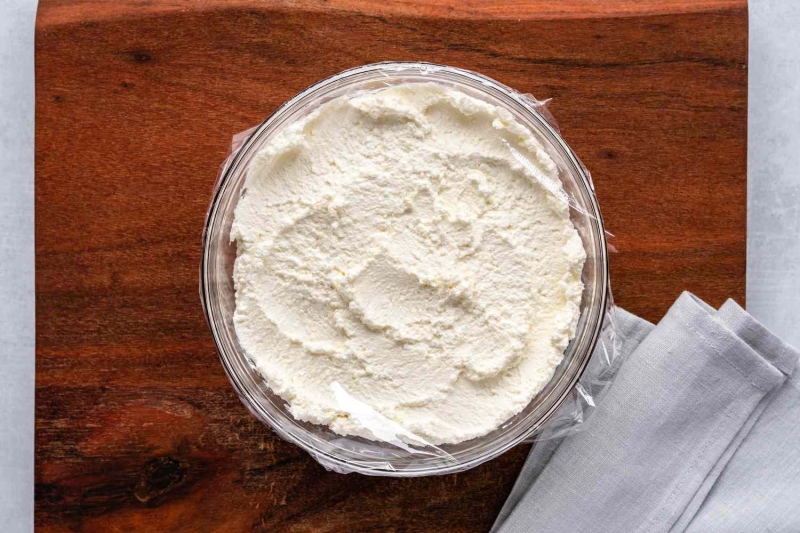
Make the Filling
-
Position a rack in the center of the oven and heat to 350 F. Separate the yolks from the whites of the eggs.
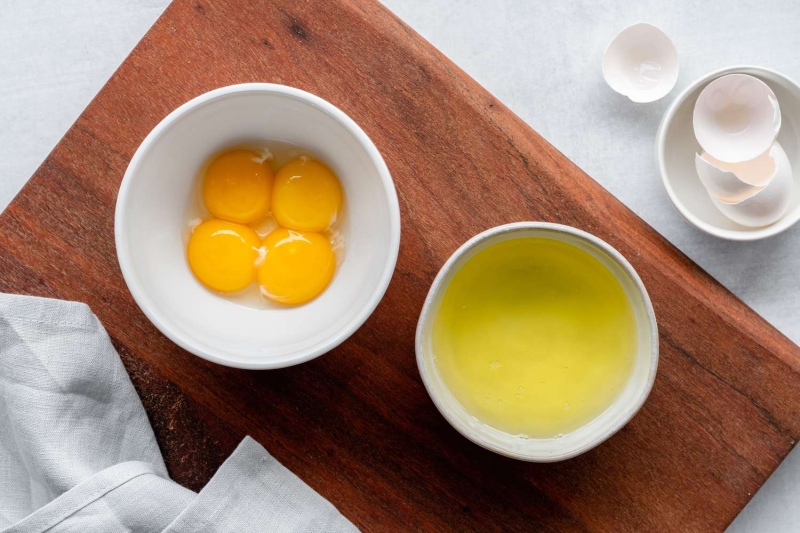
-
In a large bowl, whisk the egg whites to stiff peaks. Set aside.
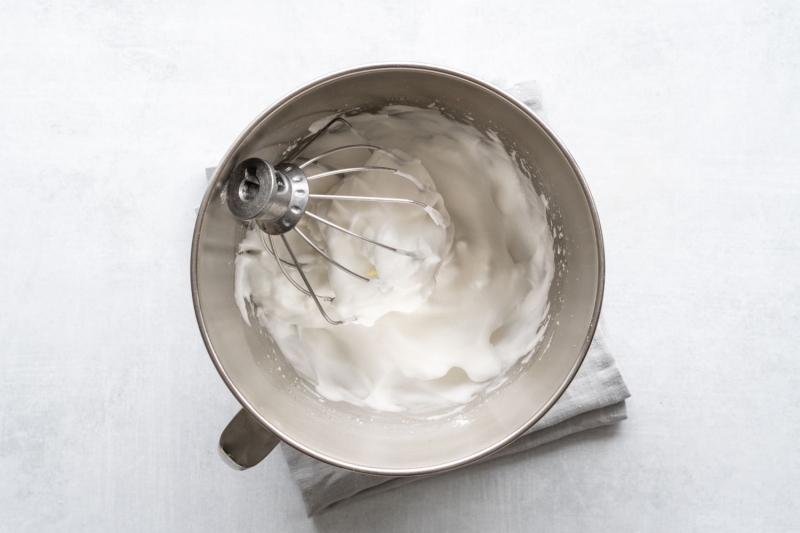
-
In a stand mixer or by hand, cream together the butter and sugar until light and fluffy, 2 to 3 minutes.
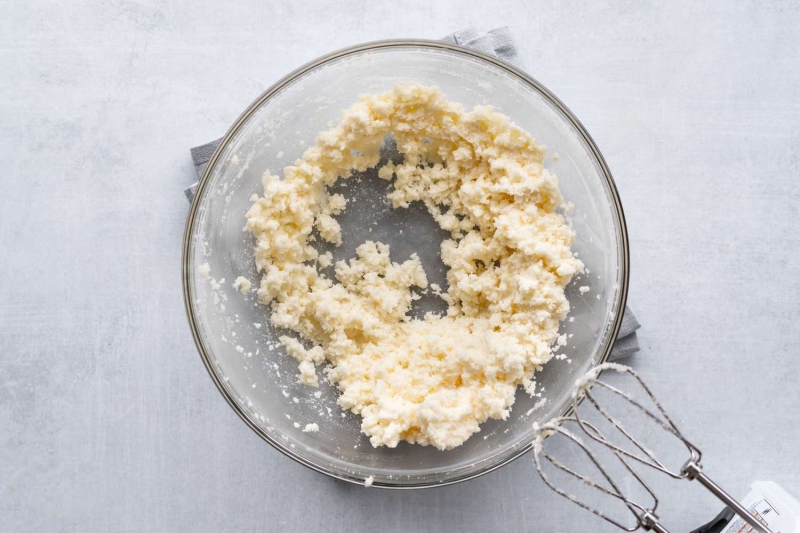
-
Add the vanilla and egg yolks to the sugar-butter mixture. Mix until well combined.
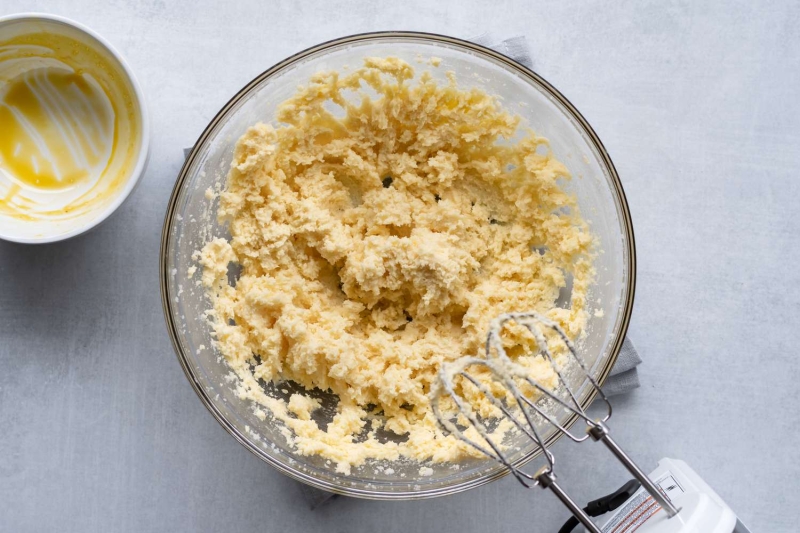
-
Stir the processed cheese into the sugar-butter-yolk mixture.
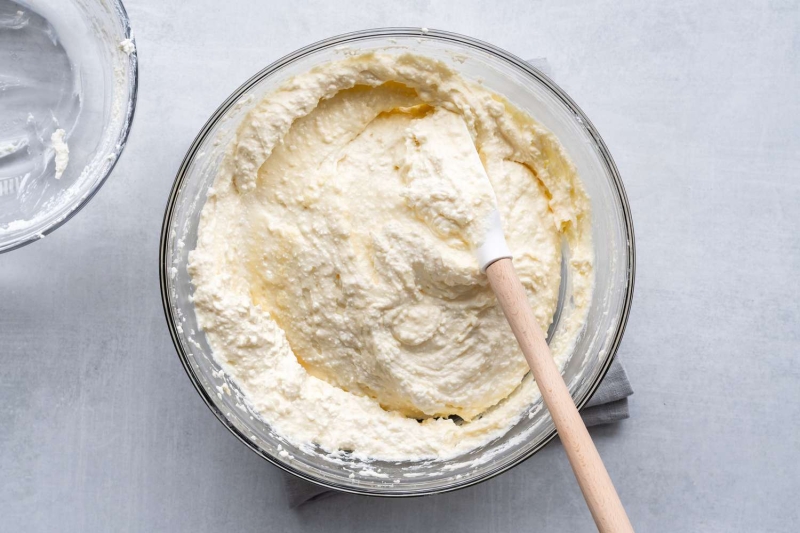
-
Fold the egg whites into the mixture by hand until well combined. Do not overmix (you want to retain as much air as possible).
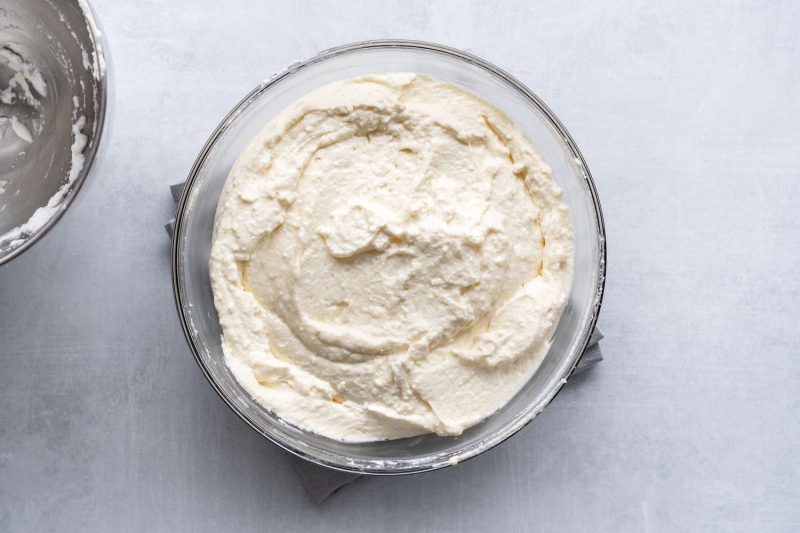
Assemble the Sernik
-
Pour the filling into the prepared pastry crust.
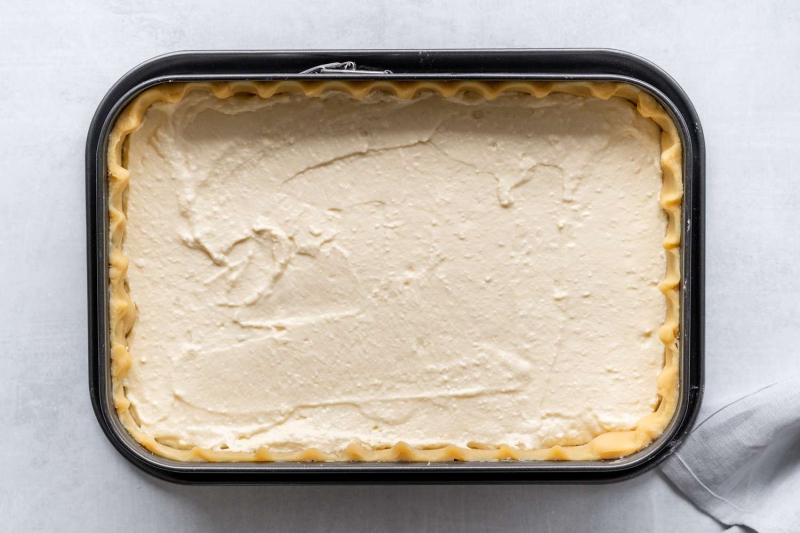
-
If you have leftover dough, roll it into pencil shapes and lay them diagonally across the top of the cheesecake.
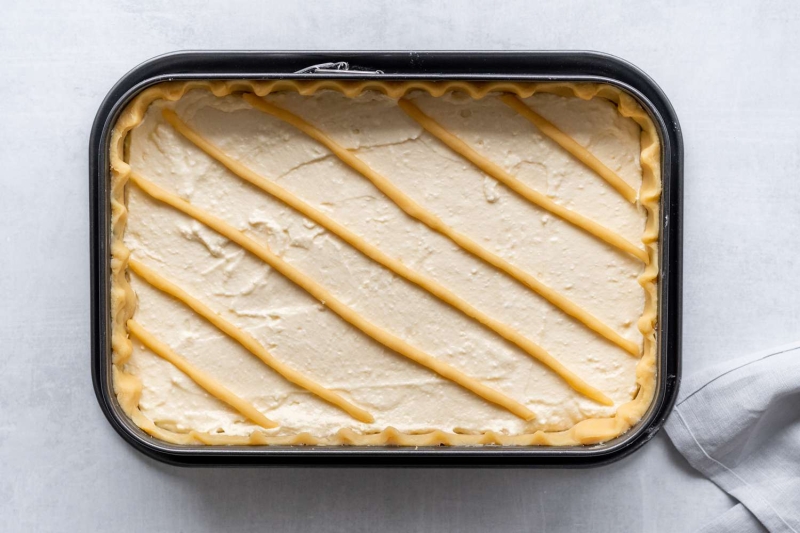
-
Bake the sernik until the center is only slightly jiggly, 50 to 60 minutes. The top shouldn't brown.
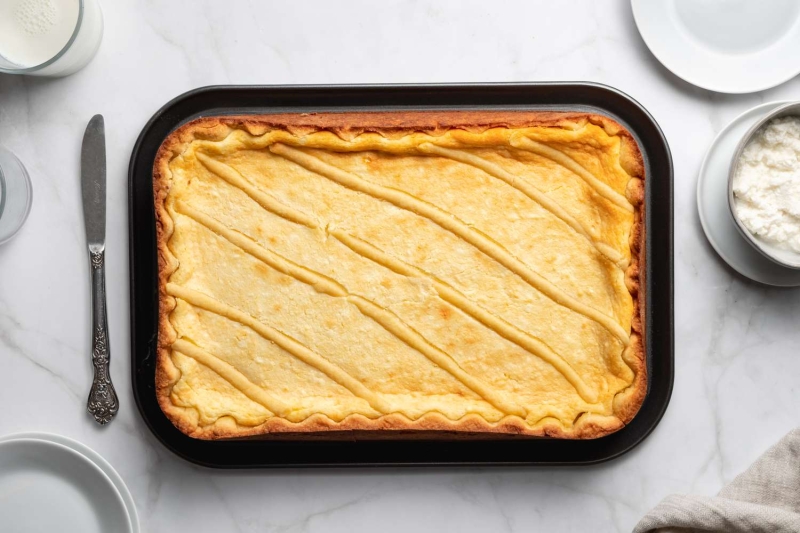
-
Let cool completely before cutting it into squares and serving.
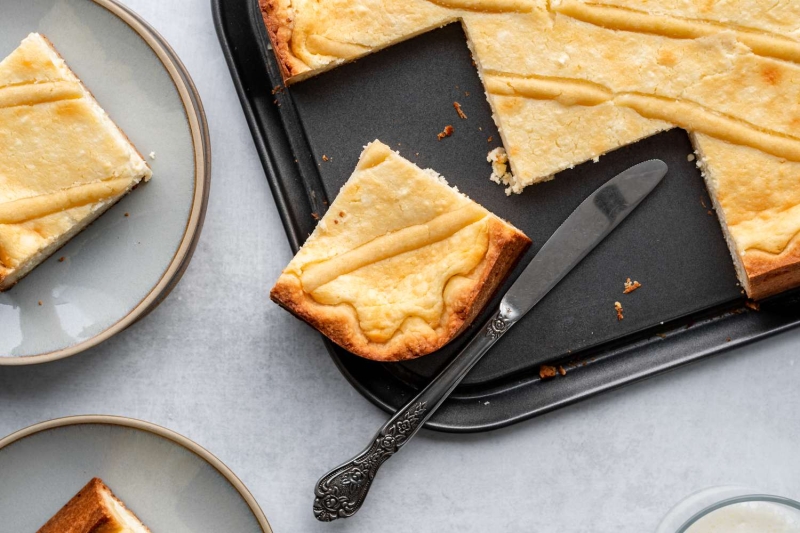
Tip
If your cheese is a little dry and does not puree well in the food processor, add a little heavy cream to loosen the mixture a bit. You want the cheese to be smooth and creamy.
Recipe Variations
- You can leave out the crust and make a crustless sernik.
- Add dried fruit to the filling.
- Stir some citrus zest, such as lemon or orange, into the filling.
- Pipe a decorative chocolate drizzle on top.
How to Store and Freeze Sernik Polish Cheesecake
Like all cheesecakes, sernik should be covered and stored in the refrigerator. It will freeze well, too. Just wrap the slices in plastic and then layer again with aluminum foil. Defrost in the fridge when you're ready to eat them.
| Nutrition Facts | |
|---|---|
| Servings: 12 | |
| Amount per serving | |
| Calories | 529 |
| % Daily Value* | |
| Total Fat 26g | 33% |
| Saturated Fat 15g | 73% |
| Cholesterol 174mg | 58% |
| Sodium 346mg | 15% |
| Total Carbohydrate 61g | 22% |
| Dietary Fiber 1g | 2% |
| Total Sugars 44g | |
| Protein 14g | |
| Vitamin C 0mg | 0% |
| Calcium 108mg | 8% |
| Iron 2mg | 9% |
| Potassium 148mg | 3% |
| *The % Daily Value (DV) tells you how much a nutrient in a food serving contributes to a daily diet. 2,000 calories a day is used for general nutrition advice. | |
